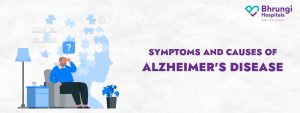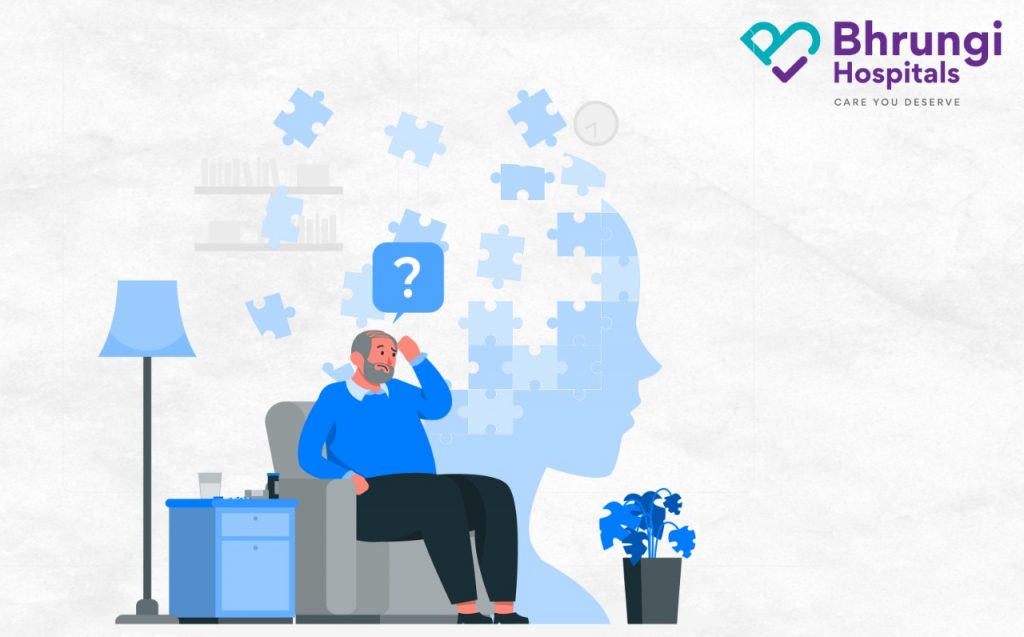
Alzheimer’s disease is a developed neurologic disorder that causes brain cells to die and the brain to shrink (atrophy). Alzheimer’s disease is the most familiar cause of dementia, defined as a progressive decline in behavioral, cognitive, and social skills that impairs a person’s ability to function independently.
Alzheimer’s disease impacts approximately 5.8 million people aged 65 and up in India. 80 percent of those are 75 or older. Alzheimer’s disease affects 60-70 percent of the approximately 50 million people worldwide who have dementia.
Early symptoms of the disease include forgetting conversations or recent events. A person with Alzheimer’s disease will grow severe memory impairment and lose the ability to perform daily tasks as the disease progresses.
Medications may enhance or slow the progression of symptoms temporarily. These treatments can occasionally help people with Alzheimer’s disease maintain function and independence for a short period. In addition, various programs and services help people with Alzheimer’s disease and their caregivers.
Alzheimer’s disease has no cure or treatment that alters the disease process in the brain. In progressive stages of the disease, complications from severe loss of brain function, such as dehydration, malnutrition, or infection, resulting in death.
Symptoms
Alzheimer’s disease gets characterized by memory loss. The ineptitude to recall recent events or conversations is one of the early warning signs. Memory impairments worsen as the disease progresses, and other symptoms emerge.
At first, a person with Alzheimer’s condition may be conscious that they have difficulty remembering things and organizing their thoughts. However, a family member or a close friend may be more likely to notice when the symptoms worsen.
Risk factors
Age
The most influential known risk factor for Alzheimer’s disease is advancing age. Alzheimer’s is not a regular part of ageing, but your chances of developing it rise as you get older.
According to one study, there are four new diagnoses per 1,000 people aged 65 to 76, 32 new diagnoses per 1,000 people aged 75 to 84, and 76 new diagnoses per 1,000 people aged 85 and older each year.
| Age Group | Men ( n ) | Women ( n ) | Total (n) |
| 55-59 | 5 | 20 | 25 |
| 60-64 | 155 | 222 | 377 |
| 65-69 | 132 | 146 | 278 |
| 70-74 | 85 | 106 | 191 |
| 75-79 | 43 | 63 | 106 |
| 80-84 | 21 | 35 | 56 |
| >85 | 18 | 15 | 33 |
| >65 | 299 | 365 | 664 |
| >55 | 459 | 607 | 1066 |
Family history and genetics
If a first-degree family — your parent or sibling — has the disease, your chances of developing it are slightly higher. Most genetic mechanisms of Alzheimer’s disease in families remain largely unknown, and genetic factors are likely to be complex.
Down syndrome
Alzheimer’s disease concerns a large number of people with Down syndrome. Alzheimer’s disease symptoms appear 10 to 20 years earlier in people with Down syndrome.
FAQs
How long will you be able to live with Alzheimer’s?
Alzheimer’s disease progresses at a variable rate. People with Alzheimer’s disease live between three and eleven years after diagnosis, but some live for 20 years or more. In addition, the degree of impairment at the time of diagnosis can impact life expectancy.
Is it possible to recover from Alzheimer’s?
Alzheimer’s disease currently has no cure. However, there is medication available that can temporarily alleviate the symptoms. There is also help available to help people with the condition and their families cope with day-to-day life.
How prevalent is Alzheimer’s disease in India?
With raised life expectancy and an ageing population in India, it gets estimated that over 5.3 million people in India have dementia (a syndrome in which memory, thinking, communication, and social abilities deteriorate), with Alzheimer’s being the most common cause.
What is the distinction between dementia and Alzheimer’s disease?
Dementia is an important term that refers to a decline in mental ability that is severe enough to interfere with daily life. The most familiar reason for dementia is Alzheimer’s disease. Alzheimer’s is a distinct disease.








